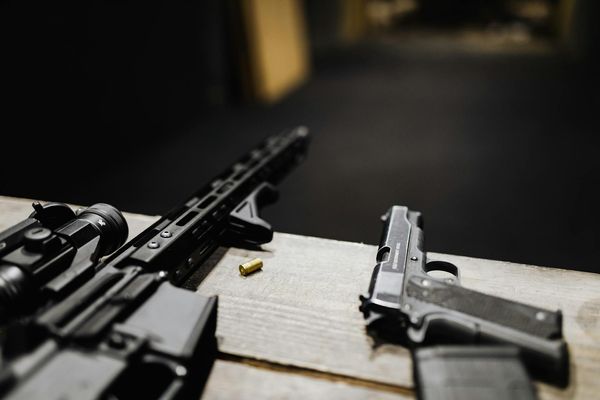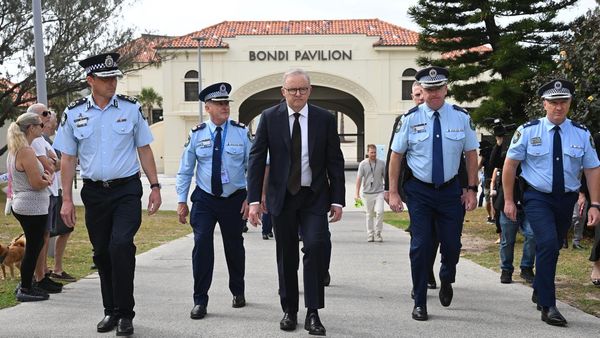
When you move to a country town, it takes a while to learn where the power lies.
There are obvious power structures, such as the council and its councillors or the local member and their political party. In the bush, it is usually a Liberal or a National MP.
That power comes with a lick of government funding and a foot in an influential door.
Then there are the cliques that wield power by dint of influence or relationships with the public office holders. These might include the hospital board, the progress association or even the footy club. These bush influencers work in sync with the obvious power figures.
This is human nature.
You scratch my back and I will bark, as my grandmother used to say.
Those power structures are hard to crack or subvert. And when you have lived somewhere for many decades, as I have, it can be hard to see how power could be exerted any differently.
But halfway through this 47th parliamentary term, I got a reminder that changes can be so subtle that it’s easy to miss them.
Two weeks ago, we covered a meeting of Darling Downs farmers who are fighting against coal seam gas expansion by Arrow Energy.
Those farmers came to hear speakers ranging from independent ACT senator David Pocock to environmental lawyers, agricultural scientists and ecosystem specialists.
It mimicked a similar event on the Liverpool Plains earlier this year, which saw teal independents invited up from Sydney to try to garner their support against Santos’ gas exploration project.
The Darling Downs meeting was organised by Suzie Holt, a former independent candidate for the federal seat of Groom. She worked with Cecil Plains farmer Liza Balmain, whose property is affected by the gas expansion.
Back in 2022, Holt shocked everyone at the federal election by coming second, largely off the back of preferences, to the LNP member, Garth Hamilton, in a crowded field.
Hamilton is on the right of the party but on the morning after the surprising result he wrote in a statement to the local paper: “It is important now that my party acknowledges the result and sets about restoring our credibility as the home of sensible, centre-right policy. We’ve much work to do.”
Holt is a former social worker, but leans progressive in a conservative country kind of way. Since the election she has called herself a regional community advocate. She has used the increased profile of her strong result at the polls to connect people and open doors. Hence the meeting on the black soil paddocks at the Cecil Plains west of Toowoomba.
Among the invitations were politicians of all stripes. She named the politicians who had showed interest (Condamine LNP state MP Pat Weir attended). She named those who had sent apologies (Queensland agriculture minister Mark Furner and Warrego LNP state MP Ann Leahy) and those who had not responded (federal Nationals leader David Littleproud). The Cecil Plains farm neighbours Littleproud’s seat of Maranoa, the safest federal conservative seat, held on 22% even after the Labor landslide.
Holt told me afterwards that she had not stopped this sort of work, since the election, though she has yet to decide whether to run again.
“The fact that we did so well has enabled me to have that opportunity and those doors open,” she said. “So I was happy to use that to see if we can create change. That soft power, whatever you want to call it, that ability to open those doors for the better of our community.”
Her profile is such that someone walked up to her recently and told her how disappointed they were that she had not done more since being in government. Holt had to inform the voter that she was not the local representative.
The whole event made me wonder whether there might be a new movement happening that does not require one to hold office to have influence.
Independent MPs in rural areas have been far less numerous than the teal city independents who crowded into the crossbench after the 2022 election. That is despite the origins of the “Voices For” model as the lead-up to Cathy McGowan’s 2013 election to the Victorian federal rural seat of Indi, where the baton has since passed to fellow independent Helen Haines.
A rural independent candidate who came close to toppling a Nationals-endorsed candidate was Rob Priestly in the seat of Nicholls, which borders Indi and is centred around the northern Victorian town of Shepparton. He said after his tilt at federal politics he has discovered a freedom to create change in a way that is harder for a public figure. His efforts have so far focused on water reform and the Indigenous voice to parliament, among other things.
“I am not accountable to everyone, I can just go out and do what’s right – which is really about your own core beliefs for your community,” Priestly said.
But while parliament and local government may not come with ultimate freedom it does come with clear lines of power.
On that score, Priestly has made it clear he is not running at the next federal election. Holt, at this stage, is not prepared to say. But they are interesting case studies on the rural political landscape, in this lull between the tumult and shouting of election times.
And, as they show, losing the battle may not always mean losing the influence.







